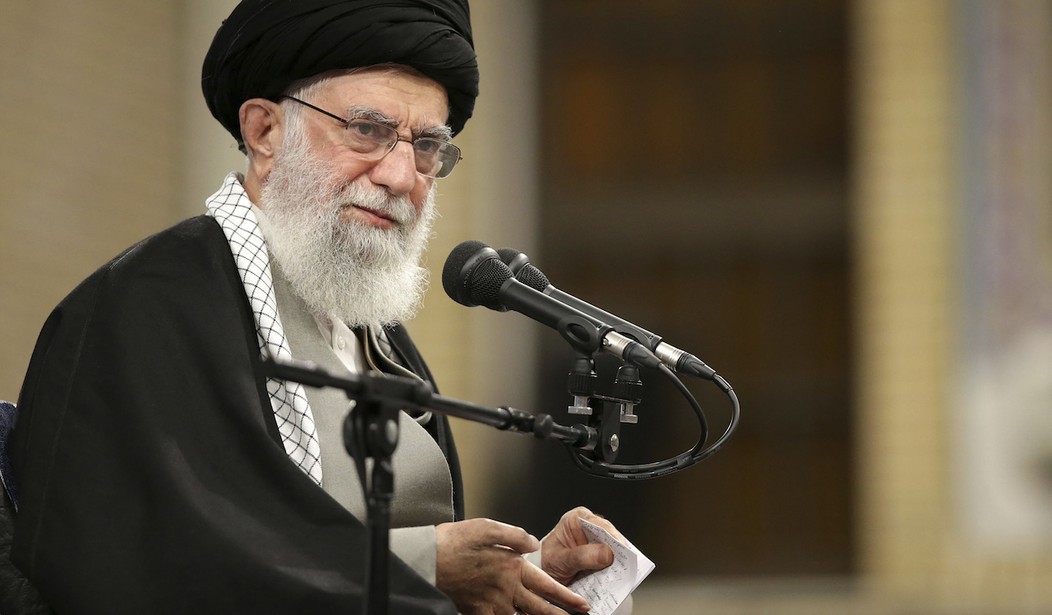A major change is pending in international affairs, coinciding with the likely transition from one American presidential administration to another. However, the details of that change will not be solely determined by the difference in political outlook between President Donald Trump and Joe Biden. Other circumstances will continue to evolve and change in the weeks to come, which may yet affect Biden's perspective and that of his advisors.
Perhaps nowhere is this more apparent than in matters of policy toward Iran. For one thing, the International Atomic Energy Agency has recently confirmed ongoing advancements in the Iranian nuclear program in clear violation of the JCPOA, which strongly suggests that the clerical regime is making no effort to wind down its provocations.
The danger of Iran obtaining a nuclear weapon should certainly remain as a motivating factor in Western policy discussions, but it is by no means the only threat that those discussions must contend with. And if an ongoing court case in Belgium is any indication, it is neither the most imminent nor the most direct Iranian threat to Western interests.
The Islamic Republic is widely recognized as the world’s leading state sponsor of terrorism, but for some reason this does not seem to have had much impact on its relations with Western countries, in particular Europe, in recent years. As a result, the Iranian regime has apparently developed a sense of impunity in such matters, which was placed on display in spectacular fashion in the summer of 2018, when at least four Iranian operatives attempted to set off a bomb at a gathering of Iranian expatriates on Western soil.
The target venue was a convention space outside of Paris which hosted the annual “Free Iran” rally organized by the pro-democracy coalition known as the National Council of Resistance of Iran. That event was estimated to attract as many as 100,000 participants, including hundreds of political dignitaries from a wide range of political affiliations and nations spanning Europe and beyond. I personally led the Italian delegation to the conference. I am also one of the 25 civil parties to the case.
Recommended
Recently, 240 European lawmakers called attention to the presence of these dignitaries alongside “the opposition leader Mrs. Maryam Rajavi, the primary target of the conspiracy.” The statement noted: “Had this terrorist operation succeeded, it would have undoubtedly left hundreds killed and many more wounded.”
This conclusion is supported by the fact that after two would-be bombers were arrested while attempting to travel from Belgium into France, the bomb in their position was detonated within a cordoned area, yet still managed to injure a police officer who was standing at a supposedly safe distance.
The point is that as Belgian prosecutors argued in the first court hearing last week, the terror plot was undertaken on the initiative of Iran’s highest authorities, and with their full understanding of the potential human cost among both Iranian expatriates and Western personnel.
The value of this broader accountability is underscored by the fact that one of those four defendants is a high-ranking Iranian diplomat at the regime’s embassy in Vienna. His role as the plot’s mastermind has been cited alongside the fact that he personally carried the explosives to Europe, as evidence of danger posed by the very existence of Iranian embassies in Western capitals.
Accordingly, the 240 lawmakers demanded that “the continuation of relations with Iran be made contingent upon the necessary guarantees from the Iranian regime to put an end to its terrorist acts on European soil,” as well as that “the necessary practical warnings… be given to Tehran, such as the closure of its embassies and the expulsion of its ambassadors and diplomats.”
Those “practical warnings” appear all the more necessary in light of Tehran’s conduct following the arrest of its terrorist-diplomat, Assadollah Assadi. Regime officials made every effort to block his extradition to Belgium after he was arrested in Germany. And since then, they have largely continued to insist that the arrest was illegal, on account of Assadi’s diplomatic status. Of course, any claim of immunity extends only as far as the boundaries of his diplomatic posting. But by apparently attempting to extend that immunity across the entire European Union and to any action, Tehran has signaled that it believes its diplomats have license to engage in malign activities at any time and in any place, without consequence.
It is imperative that that expectation be addressed before the new presidential administration takes power in Washington. The pending reversal of the U.S. presidency may open the door for Tehran and its apologists to test the boundaries of its impunity, unless the international community undertakes serious measures to demonstrate that no such impunity exists.
Part of the responsibility for this falls to the new US administration. The most prudent approach would be to send a strong message to the Islamic Republic. The incoming administration would be wise to emphasize the penalties that loom if Iran maintains its belligerent posture.
At the same time, this advice must be repeated for European policymakers. To a great extent, it is their policies and their public recognition of Iranian threats that will determine whether a Biden administration’s warnings are effective. With a cross-Atlantic cooperation, Biden will be well positioned to encourage and direct this threat.
Whatever happens between now and January 20, the proper response to Iran’s malign activity will be a cooperative response. In the wake of the current terrorism trial, that cooperation must be directed toward safeguarding the West against the persistent threat of Iranian terrorism.
When it comes to collective safety and security of the West, zero concession should be made to Tehran. Zero.

























Join the conversation as a VIP Member